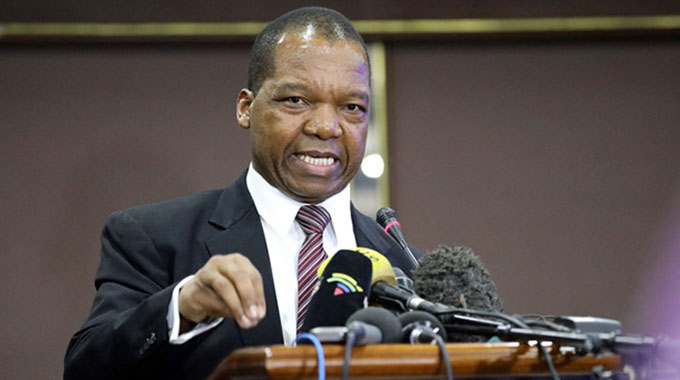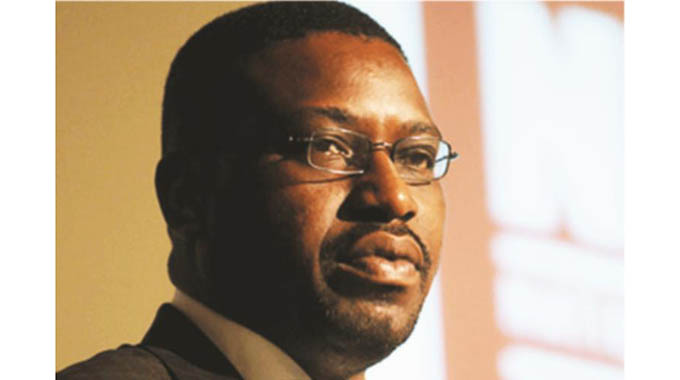EDITORIAL COMMENT : NDS1 puts Zim on sound financial footing

Zimbabwe is ending the year in remarkably good financial and economic shape, as the team of technocrats appointed by President Mnangagwa just over two years ago after he won his mandate are now happily pointing out.
The Transitional Stabilisation Programme achieved its main objectives by September, when our exchange rate went almost totally stable, and the last four months have seen the consolidation and confirmation of that stability, making it the “new normal”, and that in turn, according to initial indications, has slashed the monthly inflation rate to below five percent with the figure still dropping.
Since all this stability was driven by market forces, not by decrees from above, it is a real stability, not some make-believe.
At the same time the Government is gearing up to accelerate out of TSP into the National Development Strategy1, using the budget for next year as the main fiscal tool for the initial leap, and this week, after some heavy debate, Parliament indicated that it was giving the go-ahead for that budget, although a few changes were made as it did so.
And now rains are falling steadily. Thanks to Government and private sector contract farming programmes, and this year the Government programmes are disciplined to private sector standards so there is little difference in the contracts for Government maize or private tobacco, the real farmers, those who grow crops, had inputs in time and planted in time. And the new policy of ensuring good farmers have enough land and those who don’t farm can lose it, is another sign of the new production-orientated seriousness that has led to our present successes.
That produces a wide range of benefits. First national wealth, or gross domestic product rises. Secondly that increase in wealth is distributed very widely, pulling more than 1 million households out of total poverty. Thirdly exports rise as we sell more tobacco and more cotton. And fourthly imports are slashed as we grow most of our own food, and not just grain since oil seeds have been given a higher priority this year.
Under TSP, with market-related pricing, we had already achieved a positive balance of payments, that is our exports were higher than imports. The continued double contribution from agriculture will ensure that positive gap grows, ensuring that economic expansion can continue using stable exchange rates.
At the same time mining climbed out of its depression, with some closed mines reopening and work in progress on commissioning new mines, which will give serious increases in exports from the end of next year.
And industry is now back in gear, perhaps still orientated to import substitution rather than exports, but with 80 percent of the goods on our shop shelves now made or at least processed and packed in Zimbabwe. The ease of buying foreign currency through the auctions, with all valid bids from producers now being allotted, and the stable rate have obviously helped. Again a market-related growth.
But this does not mean we can sit back and relax.
On the auction and pricing side Reserve Bank of Zimbabwe Governor Dr John Mangudya has warned the minority who buy their currency on the auction and price using black market or even higher rates that a priority for the RBZ will be tracking them down. Competition in many sectors has stopped this practice, but there are still some, often dominated by a monopoly or near monopoly, where it still happens. The RBZ can close bank accounts and take other monetary action, but there is obvious need for the Government to back this up with investigations into price-fixing rings.
An interesting development arose with the budget. Parliament, which represents the people after all, took its responsibilities far more seriously. The portfolio committees went into considerable detail as they examined the proposed spending programme, and that programme is a thick document going into minute detail. Some changes were pushed, and accepted by Finance and Economic Development Minister Professor Mthuli Ncube, although he fulfilled his responsibility by carefully explaining how he could fund the changes, amounting to just one fifth of one percent admittedly, without increasing the total spend, which is rigidly governed by his income from taxes. No one wanted to see any return to fiscal indiscipline.
But now those same portfolio committees can go further. The Government achievement of rigid adherence to a budget, means that the budget is serious. And the committees should be seeking reports, and monthly reports now by law have to be published, and studying them closely to ensure not just compliance, but also question priorities. The budget, to a certain extent, is a dynamic document as circumstances change, with what is known as virementing, moving money, with Treasury approval, from one account to another is permitted. This is how the Government coped with the cyclone and public health emergencies without borrowing or printing money. But Parliament can check.
As representatives of the taxpayers, and we all pay something even if it is only VAT and transfer tax, Parliamentarians have a duty to ensure that every dollar spent is properly spent and wisely spent. That extra budget for the office of the Auditor General will obviously help this process. Corruption can be stopped, but of growing importance is not so much cheating as value for money.
With the Government’s capital budget now growing strongly as the national development strategy is implemented from a reformed budgeting process, most MPs will be seeing something in their constituency, and stopping and having a good look means that they can report back to their colleagues. This is of growing importance with the Government switching from external contractors and consultants to using Zimbabwean experts and businesses, giving a potential double benefit that needs to be pressed.
That in turn will make the 2022 pre-Budget process far more interactive, with ever growing seriousness of interventions and the like, rather than just explanations. Government has to manage and coordinate the whole budget process, that is one of its prime responsibilities, but we can all chip in and as we are all paying the bills we need to keep the pressure up to ensure our taxes are well spent.
We have all learned a lot over the last two years as we climbed out of an economic morass into the tightly disciplined world of the New Dispensation, and among the things we have learned is that we can all make a difference if we wish. Corruption is being tamed increasingly by whistle-blowing, for example, since people now know something will be done, while a listening President and his Government are increasingly taking into account sensible and thought-out interventions and input from the people they represent.
That switch from “them and us” to just “us”, with responsibility going right down the line from President to the humblest citizen, needs to be maintained so the national development strategy really works for all us.










Comments